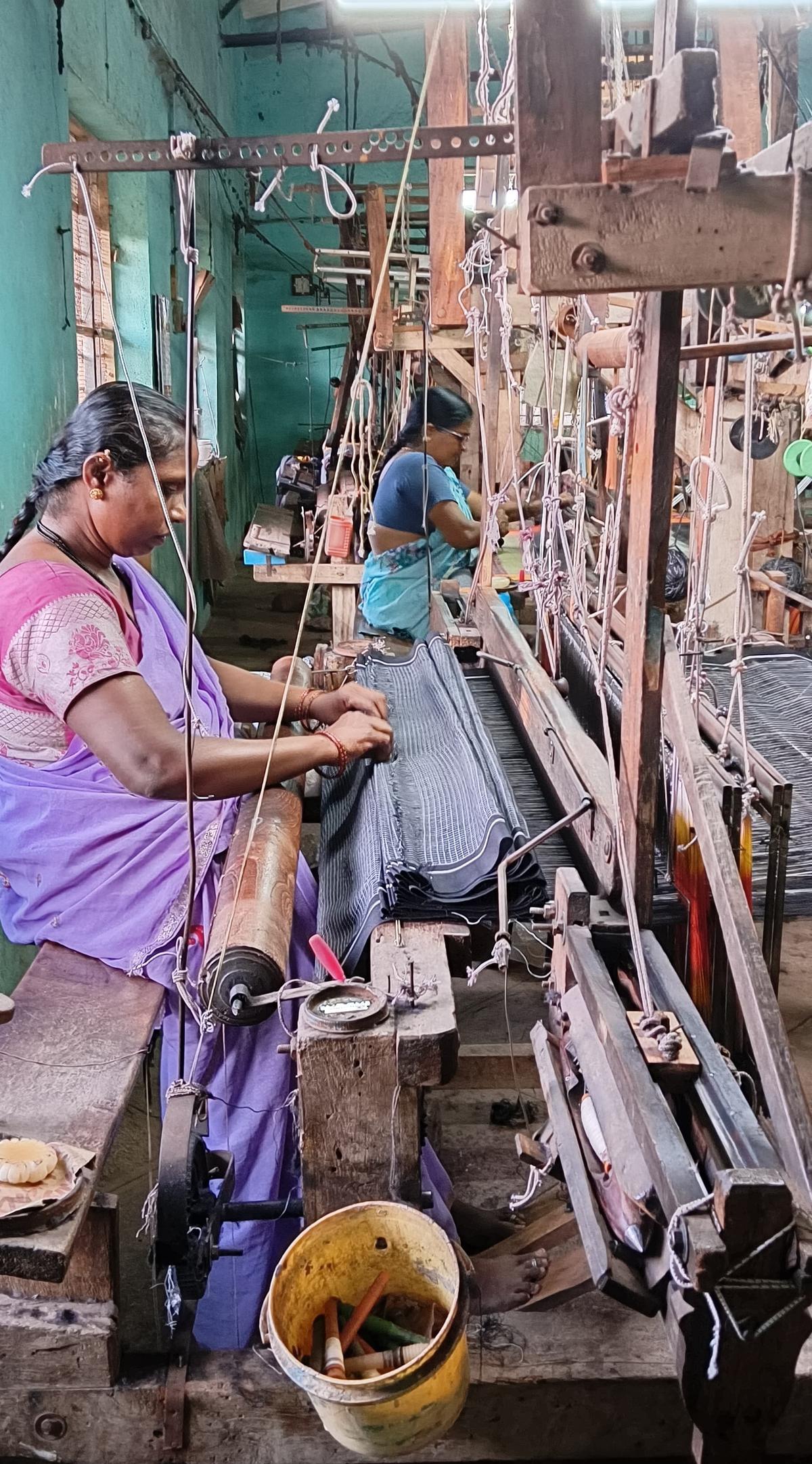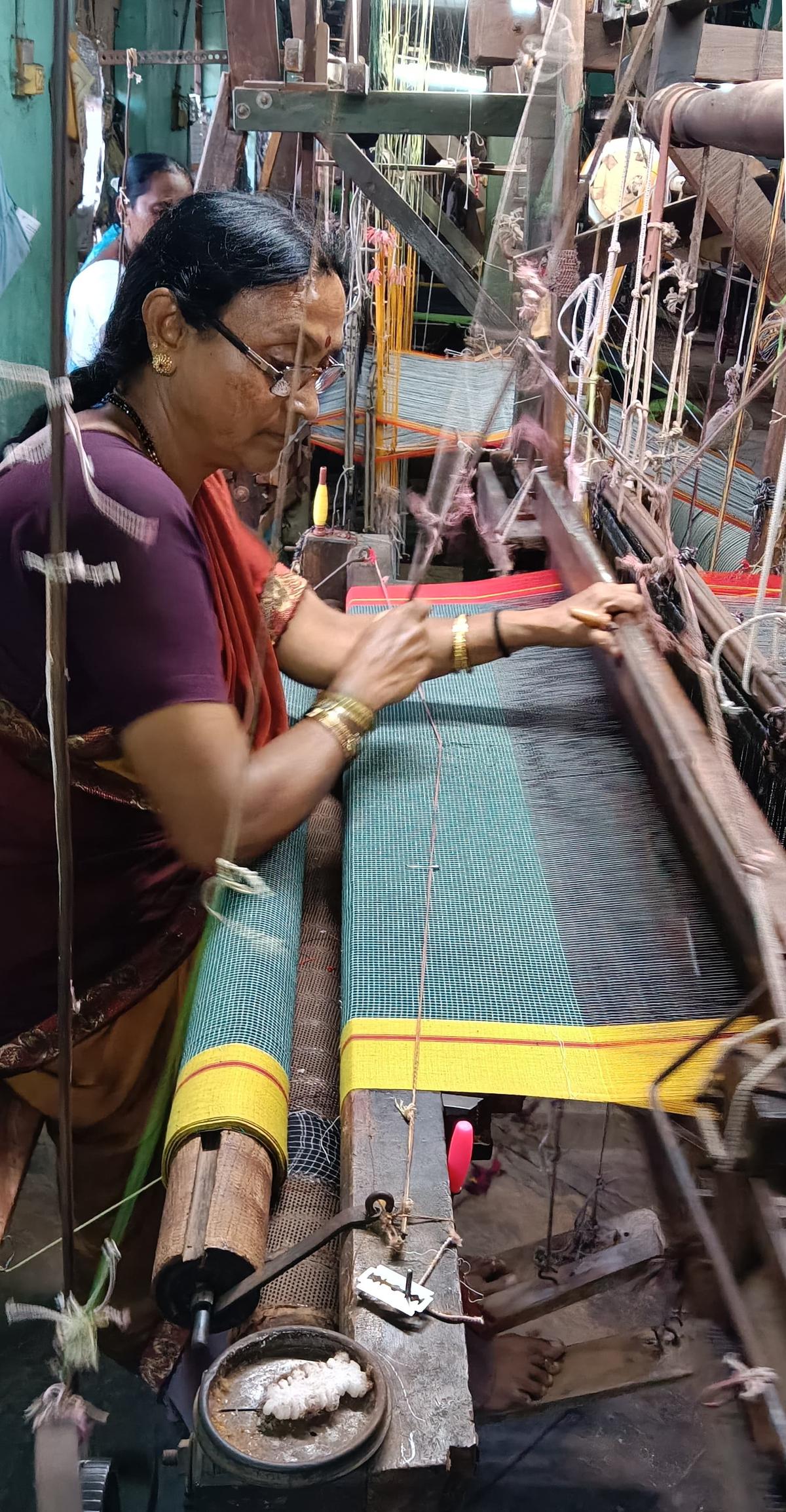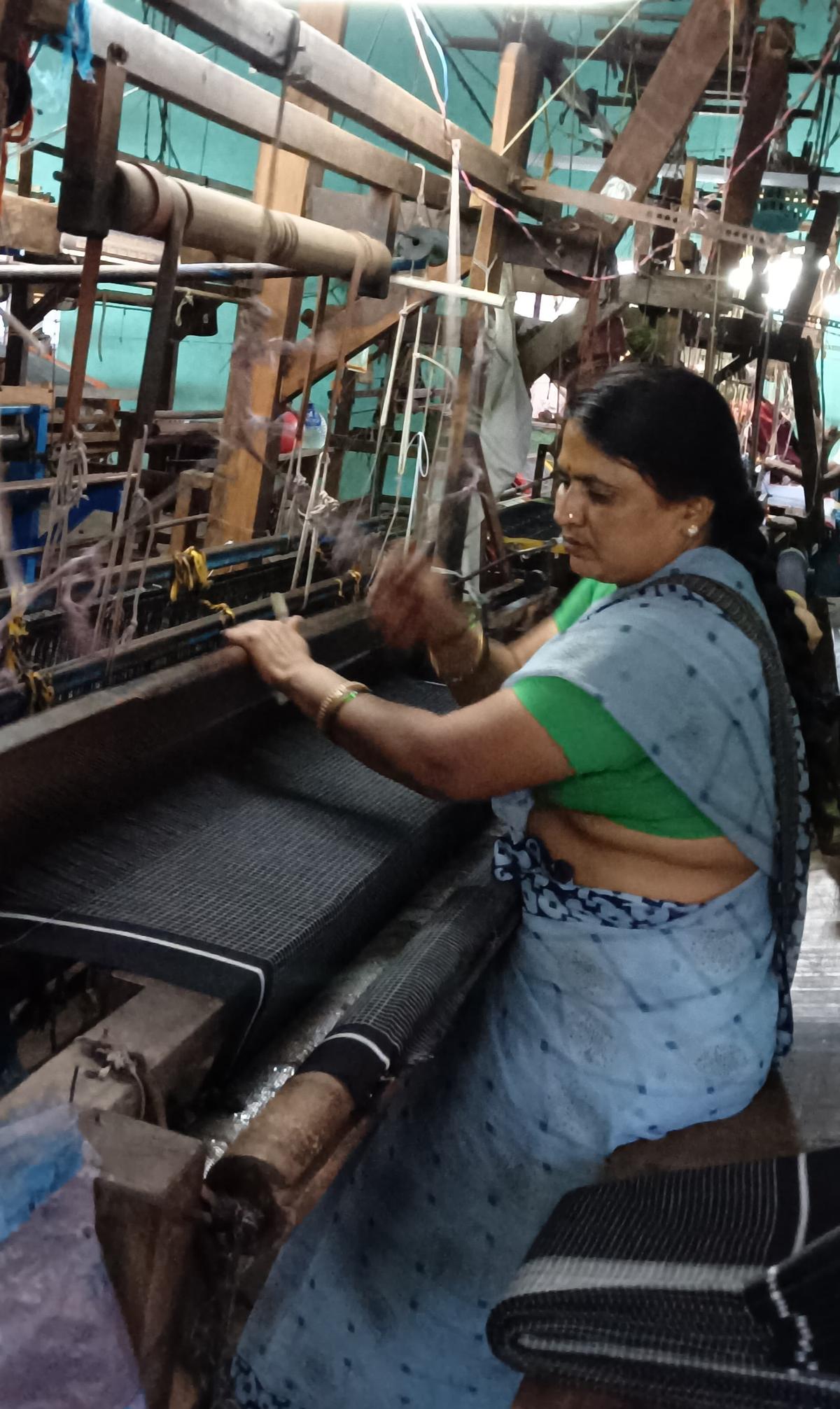Patteda Anchu Sarees: GI tags are great, but weavers need more people to maintain traditional crafts

The controller of patents, designs and trademarks and geographical signs granted the long-awaited “GI” recognition in March by Patteda Anchu Saree in Gajendragad, Gadag district, North Karnataka.
This traditional hand-woven cotton textile with natural colors is known for its bright colors and simple design. It earned its name from the large borders and square patterns. It is the daily wear of farm workers and weavers in the area, known as the “rough-using sari”, made of cheese cotton fibers and is easy to wash and dry at home. Use only yellow, blue, pink, green and maroon colors to dying. Black and gray are not used because they are considered “unlucky”.
The sap of plants, such as ladies’ fingers, acacia gum and light-colored mud found along country tanks, are used as the basis for preparing the colors of these saris.
“Patteda Anchu Sarees is produced by individuals, members of cooperative societies and groups in Gajendragad and its surrounding areas. The tradition of sari weaving is unique because Weavers sits in Kuni and excavated to the earth. It is part of the life tradition of woven and is a man of at least 500 years.”
“We are happy to get the GI certificate because we believe it will protect our craft in the future,” Maruti Shabadi, secretary of the Co-producers Association of Gajendragad Weavers told him. Hindu.
The first application was filed in 2019 as the association hopes to fight the upward trend of mass-produced Power Loom Sarees.
The association was founded in 1944 and has 1,127 members, of which 137 will regularly purchase raw materials and sell saris to the public. It employs about 30 weavers and their income is about Rs 200 per sari. The association sells saris in the range of Rs 700-1,000. The association produces about 25 saris per day.
“On average, the association produces about 9,500 saris in about 38 modes. They are sold to wholesalers, who in turn sell them to consumers in Maharashtra, West Bengal, Andhra Pradesh, Tamil and Delhi. The association is considering launching its own e-commerce website,” Shabadi said. ”
Traditional hand-woven cotton textiles are known for their bright colors and simple designs. It earned its name from the large borders and square patterns. |Picture source: Special arrangement
Benefits of GI Tags
“The textile department officials assured us that it will be like a patent and protect our knowledge base.
According to him, the faculty and staff of Ms. Ramia Law School and Ramaya Intellectual Property Center have helped members of the cooperative to file a case before the GI committee. The Director of Textile Development, Director of Handloom and the Vesveswalaya Trade Promotion Centre coordinated the application’s movement. A team led by law professor Sangeeta MS visited the association, spent several days in Gajendragad, and recorded their work through photos and videos. “They do most of the paperwork. Whenever we get called, we go to Bangalore.”
He said the association will work with Karnataka Handloom Technology Institute in Gardag, which will set up a laboratory to check the quality of the sari and detect fakes.

On average, Gajendragad Weavers’s cooperative producer association produces about 9,500 saris in about 38 modes. They were sold to wholesalers who in turn sold it to consumers in Maharashtra, West Bengal, Andhra Pradesh, Tamil Nadu and Delhi. |Picture source: Special arrangement
Five textiles from Karnataka
Of Karnataka’s 48 GI-labeled products, only 5 are in textiles. These include Ilkar sari, Molkamuru Saree, Guledgudda Khana and Udupi Saree, and Patteda Anchu Saree. But, weavers say, the number of gastrointestinal products should be increased to protect their processes.
Hatagar Nekar Samaj secretary Gurulingappa Gombi said that for every product with a GI tag, it is excluded. “Products such as Haveri’s cardamom garland, Kala Bhat Rice in Khanapur, Hukkeri’s small Brinjal and Kundgol’s Dyamanur Chilli should all be included in the list,” he said. He hopes the government will set up exclusive GI stores in the region and in Taluks and issue a command to provide GI products as gifts for government functions, rather than bouquets and shawls.
He felt that the gastrointestinal label had no obvious positive effect on weavers or artisans. “Sales of Channapattana toys or Mysore Ganjifa may have risen as the products are available in big cities like Bangalore and Mysore Ganjifa are likely to have risen. However, the situation of rural artisans is not automatically expanded because the market or travel distance of GI tags does not automatically expand,” Gobombi said.

The social secretary said the Gajendragad Weavers’s cooperative producer association will work with the Karnataka Handloom Technology Institute in Gadag, which will set up a laboratory to check the quality of the saris and find fakes. |Picture source: Special arrangement
More awareness
Ravi Patil, president of the Bellagarve Regional Weaver Association, said a higher level of awareness of such facilities is needed. “The skills of rural weavers and craftsmen are so diverse that every region or every taluke in northern North Karnataka has a unique type or sari type or design. Now, most are made by Power Booms. They need protection from protection from GI tags or other measures. Ten Weavers trainers are not suitable for their gi wards and their gi .craftsmen, but also support skilled workers groups with legal support and funding to apply for gastrointestinal tags,” Patil said.
According to him, the problems faced by weavers are lack of easy credit, uninterrupted supply of raw materials, lack of platforms to reach retail customers and lack of compensation during times of natural disasters.
Gajanan Gunjeri, founder of Karnataka Weaver Association, asked the state government to transfer the committee for textile development to Suvarna Soudha in Bellagarve to solve the weaver problem locally. “We have been fighting for this for years, but successive governments have ignored it,” he said.

The state government has been urged to establish exclusive GI stores in the region and Taruk County and issue an order to provide GI products as gifts for government functions rather than bouquets and shawls. |Picture source: Special arrangement
MSIL’s plan may be helpful
The solution seems to be seeing.
Manoj Kumar, managing director of Mysore Sales International Ltd., said the state government plans to provide an online platform for the sale of GI-marked products.
“We are developing a portal that promotes public procurement. It will also have a business-to-consumer section. We are there including GI-labeled products. GI-labeled products will be our top priority,” Kumar said.
Can Indian Patent Office website.
publishing – April 18, 2025 06:21 AM IST




